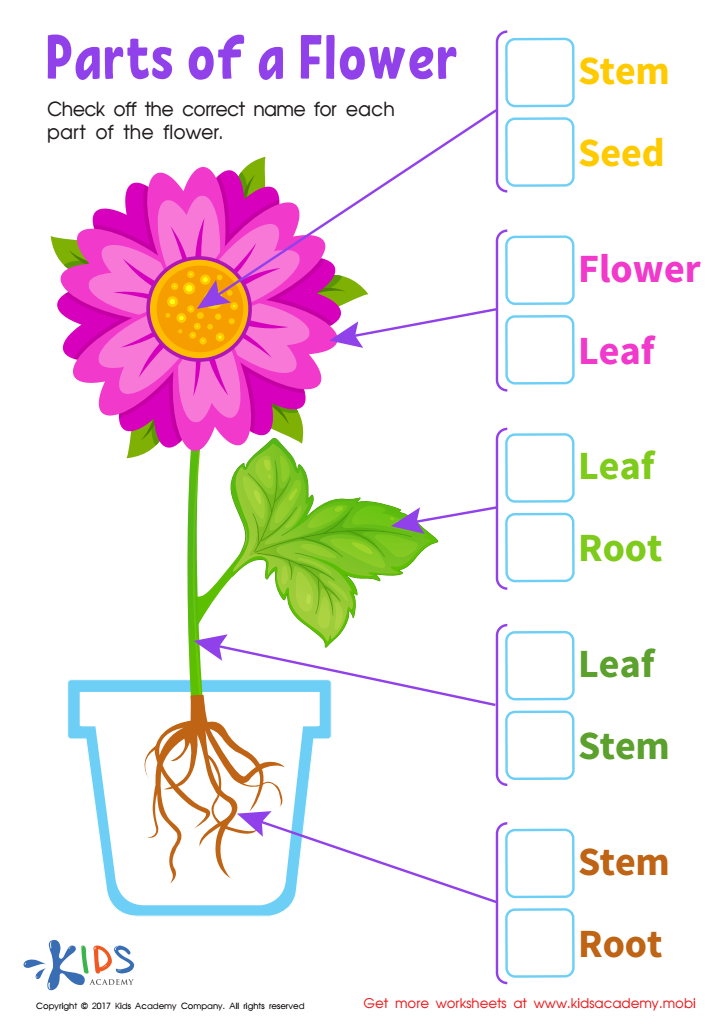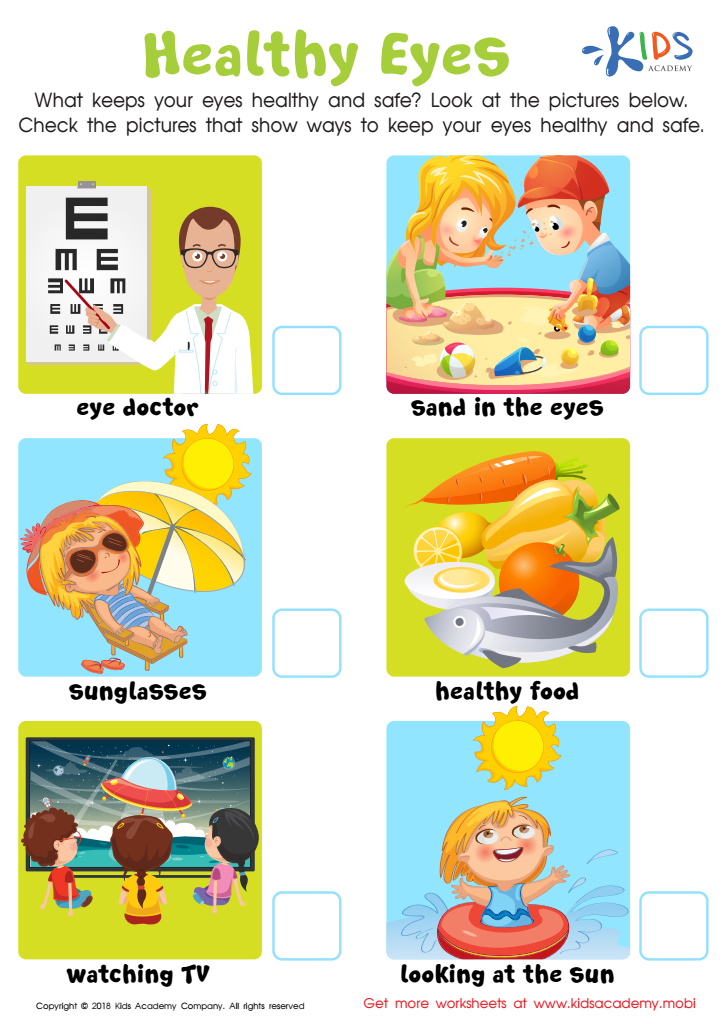Life Science Worksheets for Ages 3-4
4 filtered results
-
From - To
Nurture a love for biology in young learners with our Life Science Worksheets for ages 3-4. Kids Academy offers a collection of engaging, print-ready sheets designed to introduce preschoolers to the wonders of the natural world. Our worksheets cover key concepts like plants, animals, and environmental interactions, fostering curiosity and foundational science skills through fun activities and illustrations. Perfect for early childhood educators and parents, these resources support both in-classroom learning and at-home enrichment, providing age-appropriate content that aligns with educational standards. Bring science to life for your young explorer with Kids Academy's expertly crafted materials.


Parts Flower Printable


Herbivores Printable


Carnivores Worksheet


Healthy Eyes Worksheet
Life Science is crucial for young children, ages 3 to 4, because it lays the foundation for their understanding of the world around them. At this age, children are naturally curious and eager to explore their environment. Introducing them to basic concepts like plants, animals, weather, and their human bodies can ignite a lifelong interest in science and discovery.
Understanding life sciences also helps children to develop observation skills and the ability to reason and ask questions, which are essential for critical thinking. When they learn about the lifecycle of a butterfly or the parts of a plant, they begin to grasp important scientific concepts in a concrete, understandable way. These early lessons can develop their cognitive abilities and promote curiosity.
Additionally, knowledge about life sciences fosters a sense of responsibility and care for living things. When kids learn how plants grow or the importance of animals in our ecosystem, they start to appreciate the environment and are more likely to adopt sustainable practices and empathy toward living creatures.
Finally, engaging in life sciences enriches language development by introducing new vocabulary and promotes fine and gross motor skills through hands-on activities like planting seeds or observing insects. Overall, early exposure to Life Science provides essential building blocks for future learning and personal development.
 Assign to My Students
Assign to My Students















